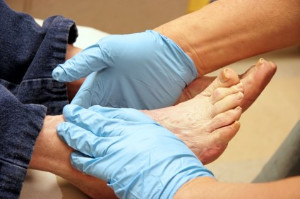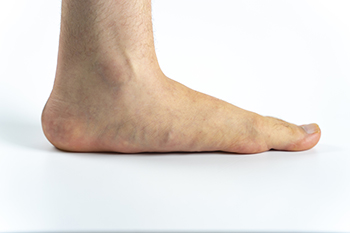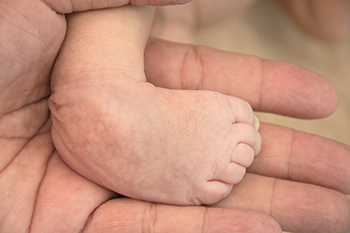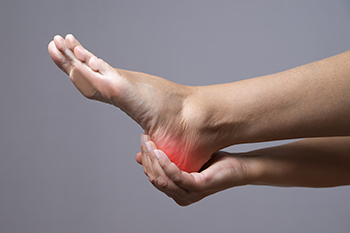Connect With Us
Blog
Items filtered by date: July 2025
How Podiatrists Support Diabetics in Foot Protection

People with diabetes face higher risks of foot problems due to poor circulation and nerve damage, which can make small injuries turn serious quickly. Podiatrists play an important role in helping these patients avoid complications. They provide regular foot checks to catch issues early, before they worsen. Care often includes trimming toenails safely, checking skin health, and treating calluses or corns that could lead to wounds. If a foot ulcer or wound develops, a podiatrist can create a treatment plan to promote healing. This may involve cleaning the wound, removing damaged tissue, and using advanced methods like special dressings or negative pressure therapy. Podiatrists also educate patients about proper footwear to prevent injuries and using orthotics for better support. For people with diabetes, foot care is not just a comfort issue, but a critical part of staying healthy. If you have diabetes and notice any changes in your feet, it is suggested you schedule an appointment with a podiatrist who can help you to manage this serious condition.
Diabetic foot care is important in preventing foot ailments such as ulcers. If you are suffering from diabetes or have any other concerns about your feet, contact Darlyne Cange, DPM from Cange Podiatry, DPM, PA. Our doctor can provide the care you need to keep you pain-free and on your feet.
Diabetic Foot Care
Diabetes affects millions of people every year. The condition can damage blood vessels in many parts of the body, especially the feet. Because of this, taking care of your feet is essential if you have diabetes, and having a podiatrist help monitor your foot health is highly recommended.
The Importance of Caring for Your Feet
- Routinely inspect your feet for bruises or sores.
- Wear socks that fit your feet comfortably.
- Wear comfortable shoes that provide adequate support.
Patients with diabetes should have their doctor monitor their blood levels, as blood sugar levels play such a huge role in diabetic care. Monitoring these levels on a regular basis is highly advised.
It is always best to inform your healthcare professional of any concerns you may have regarding your feet, especially for diabetic patients. Early treatment and routine foot examinations are keys to maintaining proper health, especially because severe complications can arise if proper treatment is not applied.
If you have any questions, please feel free to contact our offices located in Glen Burnie and Ellicott City, MD . We offer the newest diagnostic and treatment technologies for all your foot care needs.
What Is a Podiatrist and How Can They Help Your Feet?

A podiatrist is a medical specialist focused on diagnosing and treating conditions of the feet, ankles, and lower legs. They care for a wide range of issues, including heel pain, bunions, ingrown toenails, flat feet, arthritis, wounds, and sports injuries. Podiatrists also play an important role in managing chronic conditions like diabetes that can affect foot health. They provide treatments, such as custom orthotics, minor surgical procedures, and preventive care, to keep patients mobile and pain free. Whether you have persistent foot discomfort or have sustained a sudden injury, it is suggested that you consult a podiatrist who can treat various foot conditions, restoring comfort and function to everyday life.
If you are dealing with pain in your feet and ankles, you may want to seek help from a podiatrist. Feel free to contact Darlyne Cange, DPM from Cange Podiatry, DPM, PA. Our doctor can provide the care you need to keep you pain-free and on your feet.
What Is a Podiatrist?
A podiatrist is a doctor of podiatric medicine who diagnoses and treats conditions of the foot, ankle, and related structures of the leg. Your podiatrist may specialize in a certain field such as sports medicine, wound care, pediatrics, and diabetic care. Podiatrists have the ability to become board certified through training, clinical experience, and then taking an exam.
What Do Podiatrists Do?
On a daily basis, a podiatrist may perform the following activities:
- Diagnose foot ailments such as ulcers, tumors, fractures, etc.
- Use innovative methods to treat conditions
- Use corrective orthotics, casts, and strappings to correct deformities
- Correct walking patterns and balance
- Provide individual consultations to patients
It is very important that you take care of your feet. It’s easy to take having healthy feet for granted, however foot problems tend to be among the most common health conditions. Podiatrists can help diagnose and treat a variety of feet related conditions, so it is crucial that you visit one if you need assistance.
If you have any questions, please feel free to contact our offices located in Glen Burnie and Ellicott City, MD . We offer the newest diagnostic and treatment technologies for all your foot care needs.
How a Podiatrist Can Help People With Flat Feet

Flat feet, also known as fallen arches, occur when the arches of the feet collapse, causing the entire sole to touch the ground. This condition can be present from birth or develop over time due to injury, aging, obesity, or certain medical conditions. Symptoms include foot pain, swelling, fatigue, or difficulty standing or walking for long periods. Some people experience knee or back discomfort as well. Relief often comes from wearing supportive shoes, custom orthotics, or stretching exercises. A podiatrist can evaluate the structure of your feet, identify the underlying cause, and recommend a personalized treatment plan. If you have flat feet and have persistent foot pain, it is suggested that you consult a podiatrist for effective relief and improved foot function.
Flatfoot is a condition many people suffer from. If you have flat feet, contact Darlyne Cange, DPM from Cange Podiatry, DPM, PA. Our doctor will treat your foot and ankle needs.
What Are Flat Feet?
Flatfoot is a condition in which the arch of the foot is depressed and the sole of the foot is almost completely in contact with the ground. About 20-30% of the population generally has flat feet because their arches never formed during growth.
Conditions & Problems:
Having flat feet makes it difficult to run or walk because of the stress placed on the ankles.
Alignment – The general alignment of your legs can be disrupted, because the ankles move inward which can cause major discomfort.
Knees – If you have complications with your knees, flat feet can be a contributor to arthritis in that area.
Symptoms
- Pain around the heel or arch area
- Trouble standing on the tip toe
- Swelling around the inside of the ankle
- Flat look to one or both feet
- Having your shoes feel uneven when worn
Treatment
If you are experiencing pain and stress on the foot you may weaken the posterior tibial tendon, which runs around the inside of the ankle.
If you have any questions, please feel free to contact our offices located in Glen Burnie and Ellicott City, MD . We offer the newest diagnostic and treatment technologies for all your foot care needs.
Clubfoot and the Role of a Podiatrist

Clubfoot is a congenital condition where a newborn's foot is twisted out of its normal position. The foot turns inward and downward, affecting one or both feet. The exact cause is not always known, but genetic factors and conditions affecting fetal development may play a role. Symptoms include visible foot deformity, limited range of motion, and differences in leg length or muscle tone. Early diagnosis and treatment are important to avoid long-term disability. A podiatrist can offer guidance by recommending or overseeing corrective treatments, such as casting, bracing, or, in some cases, surgery. If your infant has signs of clubfoot, it is suggested that you consult a podiatrist and include this type of doctor on your healthcare team to ensure the best outcome.
Congenital foot problems require immediate attention to avoid future complications. If you have any concerns, contact Darlyne Cange, DPM of Cange Podiatry, DPM, PA. Our doctor can provide the care you need to keep you pain-free and on your feet.
Congenital foot problems are deformities affecting the feet, toes, and/or ankles that children are born with. Some of these conditions have a genetic cause while others just happen. Some specific foot ailments that children may be born with include clubfeet, polydactyly/macrodactyly, and cleft foot. There are several other foot anomalies that can occur congenitally. What all of these conditions have in common is that a child may experience difficulty walking or performing everyday activities, as well as trouble finding footwear that fits their foot deformity. Some of these conditions are more serious than others. Consulting with a podiatrist as early as possible will help in properly diagnosing a child’s foot condition while getting the necessary treatment underway.
What are Causes of Congenital Foot Problem?
A congenital foot problem is one that happens to a child at birth. These conditions can be caused by a genetic predisposition, developmental or positional abnormalities during gestation, or with no known cause.
What are Symptoms of Congenital Foot Problems?
Symptoms vary by the congenital condition. Symptoms may consist of the following:
- Clubfoot, where tendons are shortened, bones are shaped differently, and the Achilles tendon is tight, causing the foot to point in and down. It is also possible for the soles of the feet to face each other.
- Polydactyly, which usually consists of a nubbin or small lump of tissue without a bone, a toe that is partially formed but has no joints, or an extra toe.
- Vertical talus, where the talus bone forms in the wrong position causing other bones in the foot to line up improperly, the front of the foot to point up, and the bottom of the foot to stiffen, with no arch, and to curve out.
- Tarsal coalition, when there is an abnormal connection of two or more bones in the foot leading to severe, rigid flatfoot.
- Cleft foot, where there are missing toes, a V-shaped cleft, and other anatomical differences.
- Macrodactyly, when the toes are abnormally large due to overgrowth of the underlying bone or soft tissue.
Treatment and Prevention
While there is nothing one can do to prevent congenital foot problems, raising awareness and receiving neonatal screenings are important. Early detection by taking your child to a podiatrist leads to the best outcome possible.
If you have any questions, please feel free to contact our offices located in Glen Burnie and Ellicott City, MD . We offer the newest diagnostic and treatment technologies for all your foot care needs.
Let the Expert Treat Your Ingrown Toenails
Finding Relief From Morning Heel Pain

Many people experience soreness near the base of the foot, especially after waking up or standing for long periods ot time. This discomfort often results from strain in the connective tissue that helps support the arch. When this tissue becomes stressed, small tears and inflammation can develop, leading to pain with each step. It can feel sharp, aching, or deep in the heel. This issue is more likely to occur in those who walk often on hard surfaces, wear unsupportive shoes, or have foot structure concerns. Ignoring the early signs may lead to longer recovery times. Simple stretches, footwear changes, or activity adjustments can help manage the condition. If you have pain near your heel or arch, it is suggested that you schedule an appointment with a podiatrist for a proper diagnosis and more advanced treatment.
Many people suffer from bouts of heel pain. For more information, contact Darlyne Cange, DPM of Cange Podiatry, DPM, PA. Our doctor can provide the care you need to keep you pain-free and on your feet.
Causes of Heel Pain
Heel pain is often associated with plantar fasciitis. The plantar fascia is a band of tissues that extends along the bottom of the foot. A rip or tear in this ligament can cause inflammation of the tissue.
Achilles tendonitis is another cause of heel pain. Inflammation of the Achilles tendon will cause pain from fractures and muscle tearing. Lack of flexibility is also another symptom.
Heel spurs are another cause of pain. When the tissues of the plantar fascia undergo a great deal of stress, it can lead to ligament separation from the heel bone, causing heel spurs.
Why Might Heel Pain Occur?
- Wearing ill-fitting shoes
- Wearing non-supportive shoes
- Weight change
- Excessive running
Treatments
Heel pain should be treated as soon as possible for immediate results. Keeping your feet in a stress-free environment will help. If you suffer from Achilles tendonitis or plantar fasciitis, applying ice will reduce the swelling. Stretching before an exercise like running will help the muscles. Using all these tips will help make heel pain a condition of the past.
If you have any questions, please feel free to contact our offices located in Glen Burnie and Ellicott City, MD . We offer the newest diagnostic and treatment technologies for all your foot care needs.

